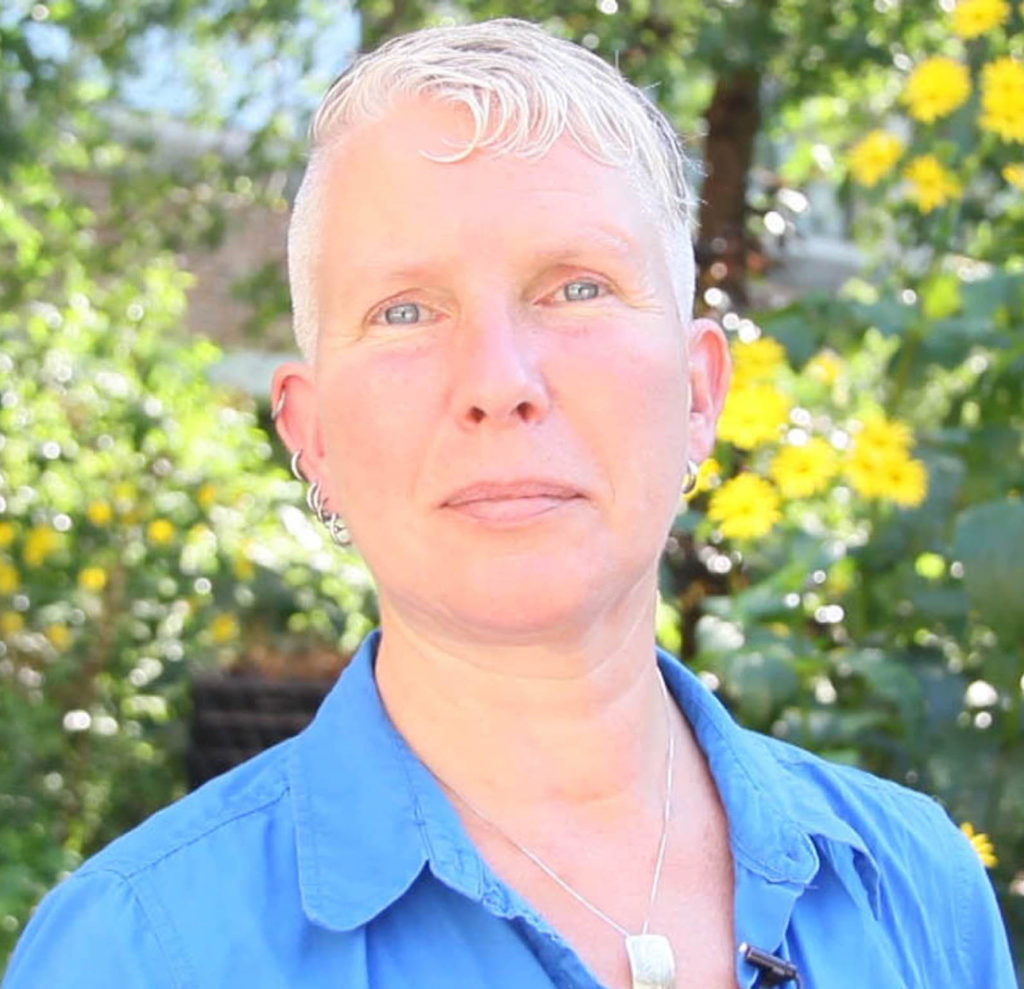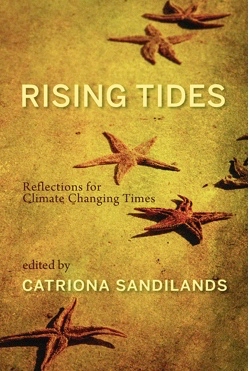By Roger Ali (July 17, 2020)
Rising Tides: Reflections for Climate Changing Times, Edited by Catriona Sandilands, Catelin Press, October 19, 2019, 248 pp., $24.70
I read Rising Tides when the COVID-19 pandemic was at its peak and couldn’t help but draw connections with the realities of climate change and the complexities of our social, political and environmental relationships. Sandilands brings together a collection of forty-three works of short fiction, poetry and literary non-fiction that create a response to our climate-changing times in a purposefully written anthology. Rising Tides is part of a Fellowship project on Storying Climate Change: Narrative, Imagination, Justice, Resilience, supported by the Pierre Elliott Trudeau Foundation (PETF).
The expert writers in Rising Tides are uniquely and intensely involved with the environment and draw connections between personal lived experience and memory as storytellers, activists, researchers and teachers. The stories show the important role global citizens have to play in a broader public conversation. I felt sorrow, loss, fear and a deep concern for the critical climate issues facing the planet. What transpires in the future depends on what actions we take now. We can avoid an apocalyptic outcome.
The book is divided into four sections: What We Have Lost, What Worries Us, What We May Understand, and What We Imagine. I found myself rereading and reflecting on the messages in the poetry, stories, essays and memories to better understand the complexity of climate change. Sandilands hopes their work will inspire others to reflect more deeply on their own experiences and share and talk about them with others.
In her story on Transfearance Transfearmation Ashlee Cunsolo writes, “There is a piece of me that feels broken. Not a big piece. Not a noticeable piece. But a deep piece. One of those pieces that a younger version of me may have revelled in, in the existential angst, and found creativity in the dramatics of the damage of pain.”
This is a powerful piece of writing giving voice to one’s feeling of grief and sadness and pain or maybe fear. As a climate change researcher, she has been immersed in the pain, distress, sadness, anxiety, fear, and anger from people who are at the front lines – who didn’t ask to be – in Inuit Nunangat, the homeland of the Inuit in Canada. She heard the stories of their deep bonds to the land that is changing beneath them. She describes ecological grief related to
shifting places, weather, and ecosystems. She concludes with a purposeful message that her ecological grief may find its healings in rooting in a place and really getting to know it, in noticing the subtle changes, day after day.
Of relevance, Timothy B. Leduc in Ǫ da gaho dḛ:s: Isle Weaving in Climates of Change shares a beautiful quote from Kondiaronk, Wendat Chief, 1701:
“They preferred to walk in the darkness of war [but] today the Sun dissipated all these clouds to reveal that beautiful Tree of Peace which was already planted on the highest mountain of the earth.”
Some of the narratives I read reflect on the impact of climate change on trees and forests. In Are We Facing the Death of the Tree of Life?, Suzanne Fournier shares Cedar has long been honoured as the tree that sustained life on Canada’s West Coast. She writes,
“And, indeed, the cedars can be seen to be dying back faster in hotter, drier areas and in more-polluted urban environments.” In parallel with Deblekha Guin’s poem, she can’t believe how abruptly those cedars have died, “lush green only last year”.
Christine Lowther’s, More Perilous Than a Leaning Tree, makes a powerful opening with, “climate change is caused by deforestation, deforestation is caused by climate change.”
Water in its many forms is another theme in the book. Futures on Ice by Jamie Snook, Cunsolo’s partner, says, “Inuit are people of the sea ice. If there is no more sea ice, how can we be people of the sea ice?”
He feels an increasing urge to make the most of ice while he can. ‘Ocean’ by Ann Eriksson is a fascinating excerpt from Imagine, a future novel, about how the ocean and marine animals play a role in our lives. She describes compelling images of jellyfish that made me imagine I was in the boat surging forward with jellies around me.
Just. Don’t. Say. It. is a short story by Tzeporah Berman of the beauty of Cortes Island with its white-sand beaches and rich tidal lagoons. She shares memories of teaching her boys about being connected to nature and struggles watching them face the devastating impact that climate change has had in the world. She gives hope by saying,
“I hope that we are truly living at the tipping point on climate change, driven by the engagement of youth. “

Sandilands ends with a beautiful acknowledgement of Galiano Island, the location where the workshop was held that brought together many of the contributors to have a conversation about climate change that helped shape Rising Tides. These thoughtful stories bring awareness and give purpose to a shared meaning, calling the reader to action to bring about positive change that I hope to see in my lifetime.
(Roger D. Ali, MBA, CFRE is president and CEO of the Niagara Health Foundation @fundraiseroger)
Also reviewed by Roger Ali
Choosing what sparks joy (April 20, 2020)
The diversity industry is thriving, even if diversity itself is not (January 23, 2020)
Stories we need to hear from people we want to know (August 29, 2020)
